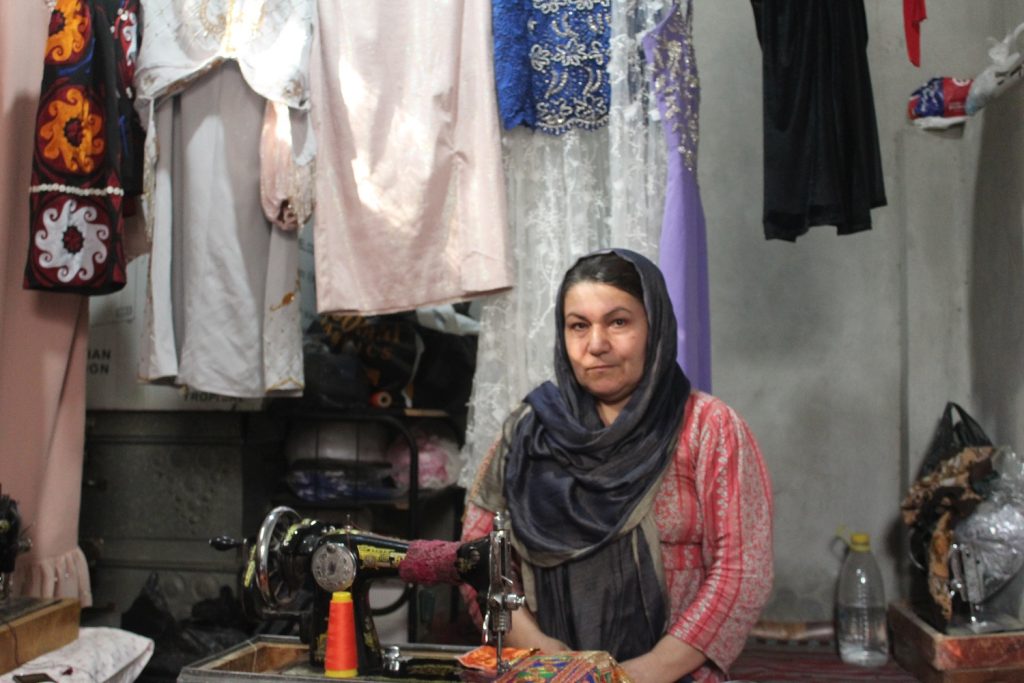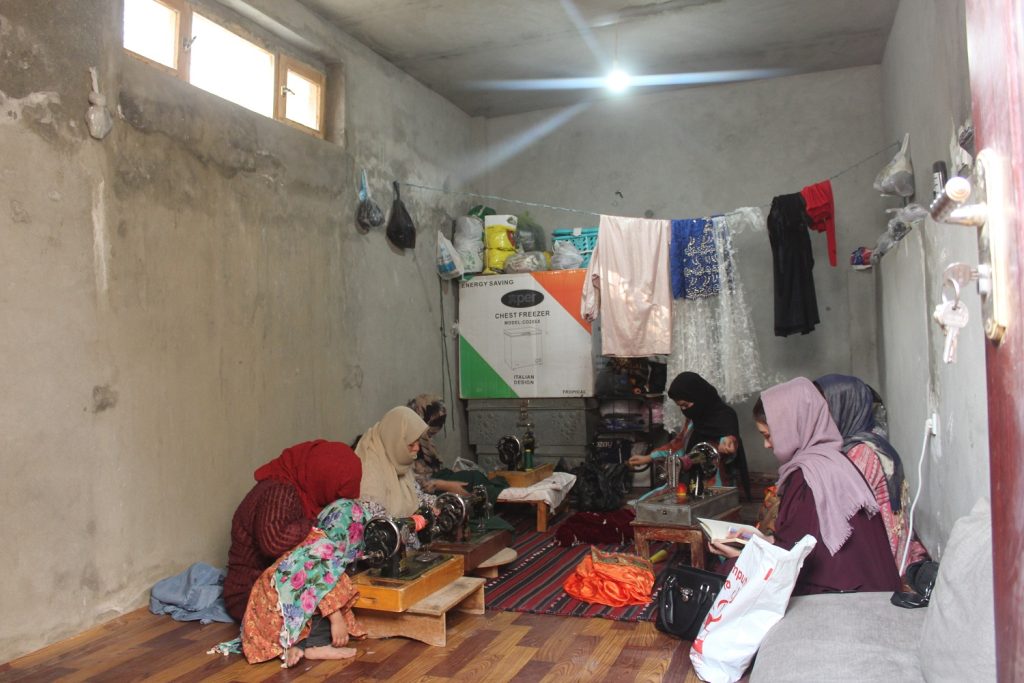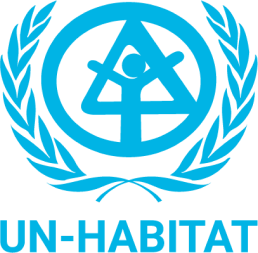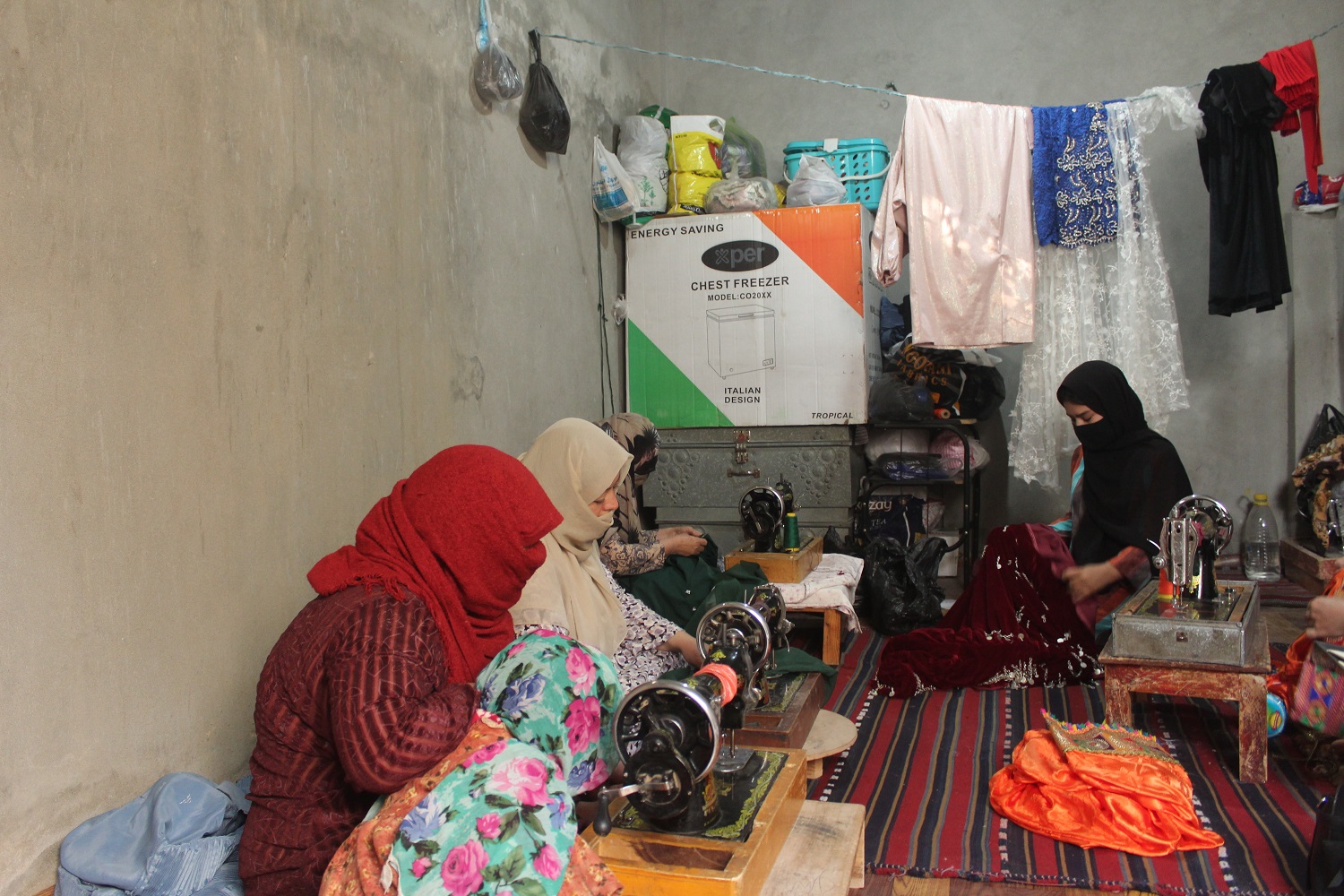Mrs. Zulekha Ahmadi, a resident of PD4, in Mazar-i-Sharif city who lives with her husband, three children, mother, and mother-in-law, had lost her livelihood income after August 2021 event. Zulekha used to work as teacher but after the ban on women, she lost her only source of income.
“I was a teacher in one of the schools here in Mazar, but due to the Taliban ban on women, I had to leave my work and I was just staying at home without anything to do. Hearing of an opportunity that UN-Habitat will be proving a free training on tailoring to women, I showed interest and luckily, I was selected as one of the beneficiaries.”

In Afghanistan, post August 2021, women have been restricted to exercise their rights to education and socioeconomic activities. UN-Habitat with generous support from the Special Trust Fund for Afghanistan (STFA) through the ABADEI programme, has been supporting and empowering women to contribute to their community’s development and improve their livelihoods through provision of basic human needs that include construction of women empowerment centers, provision of vocational skills trainings, and supporting women led SMSEs. Zulekha is one of the women who has benefitted from such support through a three month vocational tailoring training.
“I had taken the tailoring training course from UN-Habitat ABADEI programme for three months. Before taking the tailoring training course, I did not have any tailoring skills and did not know anything about tailoring. During the tailoring training course, I had learned different tailoring skills that include measurement, sewing, cutting of clothes, and marketing. We were also provided some money to support our daily expenses during the training which also supported solving some problems in my home.”
Upon completion of the training, Zulekha managed to open a small tailoring shop within her house compound operating old sewing machines where she makes women clothes for her community. Since she opened her shop, she has seen an increase in orders with 5 orders made on average in a day and she is able to make an average net income of AFS 100,000 (USD 1,349) a month.
“I am grateful for the support provided by UN-Habitat as I managed to open a small tailoring shop which has supported my family. I now make clothes for women, and I have seen an increase in orders. Still, I am facing challenges as my tailoring machines are old and not fast enough in sewing. If we would be supported with modern and new tailoring machines, my business would improve and become more successful.”
Looking at the challenges other women in her community are facing after she has gone through the same after she lost her teaching job, which was her only source of income, she now has started mentoring 10 other women in tailoring skills. Despite not having skills as a trainer, she realized she could use her teaching experience to mentor and support other women in tailoring through her shop for free.
“Now I have 10 trainee women here who want to learn tailoring skills and they work with me. I am training them through hands on and day by day they are improving as they are supporting me make clothes from the orders I receive, giving them actual skills on what is required by clients.”

In Afghanistan, women empowerment interventions are crucial to supporting an inclusive society that develops their communities leading to achievement of Sustainable Development Goals and the New Urban Agenda. Without women participation and inclusion, strides made in the past 20 years on women empowerment would be lost leading to an increase in women illiteracy rate. UN-Habitat is grateful to STFA for the support which has facilitated building skills for women such as Zulekha.
“We hope and request UN Habitat to expand such tailoring and vocational trainings and support so that more women will be empowered and will have improved skills and livelihoods”.


